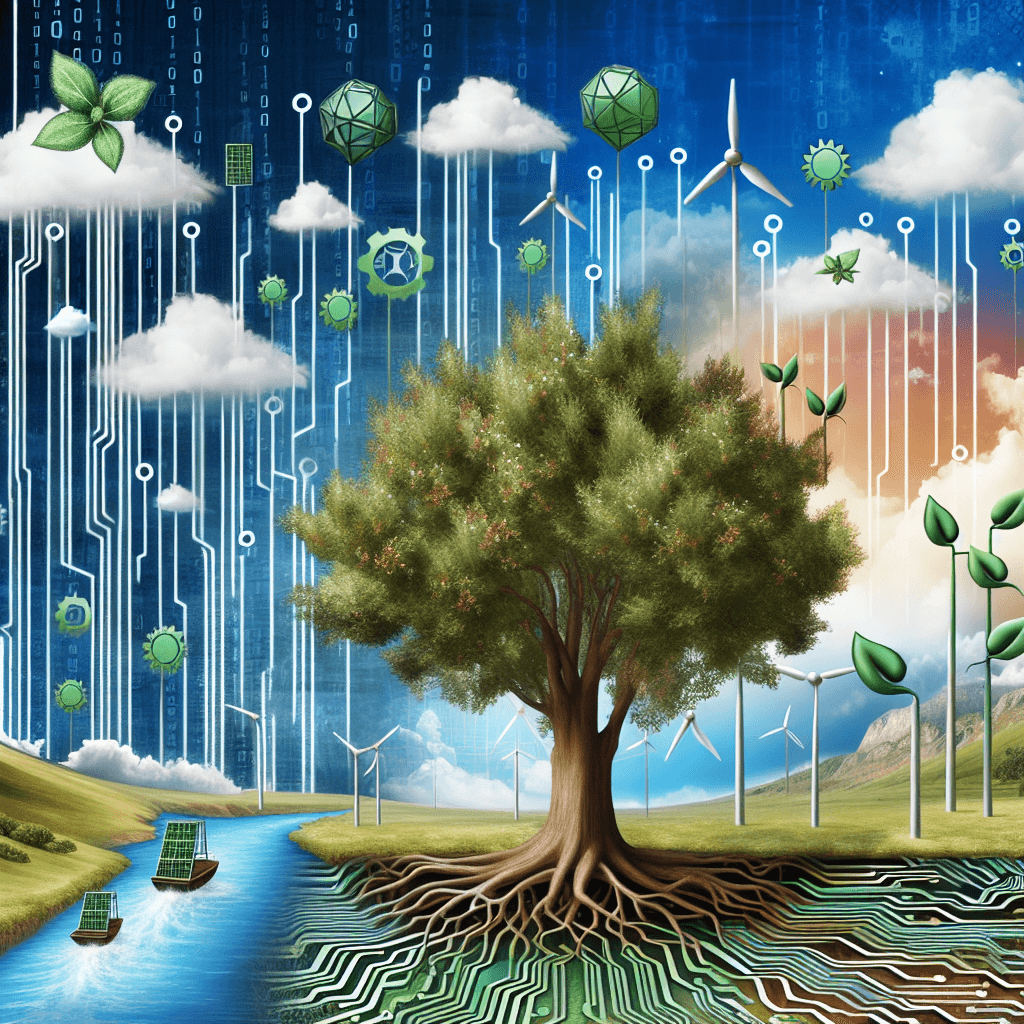Cooling the Tech Boom: Computing Green for a Sustainable Future
The digital age has ushered in an era of unprecedented technological advancement, with data centers and computing power becoming the backbone of our modern world. But this progress comes at a cost. The rapid proliferation of digital devices, cloud computing, and AI has led to a surge in energy consumption, leaving a sizable carbon footprint on our planet. It's clear: our current trajectory is unsustainable. As we innovate, we must also prioritize sustainability, ensuring our digital future doesn't come at the expense of our planet's health. This is where the concept of "computing green" comes into play.
The Energy Appetite of the Digital Age
To understand the urgency, let's look at the numbers. Data centers, the powerhouses of the digital age, consume a massive amount of electricity for their operation and cooling systems. Reports suggest that the ICT industry could be responsible for up to 20% of global electricity consumption by 2030. This energy consumption translates into significant greenhouse gas emissions, contributing to climate change and its cascading effects.
Computing Green: A Multi-Faceted Approach
"Computing Green" isn't just a trendy term; it's a necessary shift in how we design, build, and use technology. It encompasses a multi-pronged approach:
- Energy-Efficient Hardware: At the heart of the solution lies the development of energy-efficient hardware. This includes:
- Processors and Servers: Innovations in chip design, utilizing materials with lower energy requirements and optimizing data processing pathways, are crucial.
- Data Storage: Transitioning to more efficient storage solutions, such as solid-state drives (SSDs) that consume less power than traditional hard disk drives (HDDs), is essential.
- Optimization Software and Algorithms:
- Software Efficiency: Developing software that is less resource-intensive, requiring less processing power and memory, is key.
- Algorithm Optimization: Designing algorithms that are streamlined and require fewer computational steps can significantly reduce energy consumption, especially for AI and machine learning applications.
- Sustainable Data Centers:
- Renewable Energy Sources: Powering data centers with renewable energy sources like solar, wind, and hydroelectric power is vital to reducing their carbon footprint.
- Liquid Cooling Technologies: Implementing innovative cooling solutions, such as liquid cooling, which are more energy-efficient than traditional air conditioning systems, is crucial.
- Modular Data Centers: Designing data centers with a modular approach allows for flexible scaling of computing power based on demand, reducing unnecessary energy consumption.
The Role of Individuals and Organizations
While technological advancements are paramount, the responsibility to "compute green" extends beyond the tech industry.
Individuals:
- Mindful Device Usage: Simple actions, like dimming screen brightness, using power-saving modes, and shutting down devices when not in use, can collectively make a difference.
- Data Minimization: Being conscious of our digital footprint—limiting unnecessary data storage and choosing cloud providers with strong sustainability practices—is essential.
- Supporting Sustainable Tech Companies: Opting for products and services from companies committed to environmental responsibility sends a powerful message.
Organizations:
- Sustainable Procurement Policies: Prioritizing the purchase of energy-efficient hardware and software should be a key consideration in organizational decision-making.
- Remote Work and Digital Collaboration: Embracing remote work models and utilizing digital collaboration tools can reduce the environmental impact associated with commuting and physical office spaces.
- Employee Education and Awareness Programs: Implementing training programs to educate employees about sustainable computing practices empowers them to contribute to a greener workplace.
01TEK: Pioneering a Sustainable Future for Education
The education sector, with its increasing reliance on technology, has a significant role to play in promoting "computing green." 01TEK, a leading eLearning platform, is at the forefront of this movement. By integrating cutting-edge technologies like AI and blockchain, 01TEK is committed to providing accessible, personalized education while minimizing its environmental impact.
Looking Ahead: A Collective Responsibility
"Computing green" isn't just a technological challenge; it's a shared responsibility. As we continue to push the boundaries of technology, we must do so with an awareness of its impact on our planet. By embracing innovation, collaboration, and mindful practices, we can pave the way for a sustainable digital future where technological advancement goes hand in hand with environmental stewardship.
Ready to explore innovative solutions for a sustainable future? Discover more about courses and resources on 01TEK and be a part of the change!
Risk more than others think is safe. Dream more than others think is practical.
Howard Schultz, CEO of Starbucks



